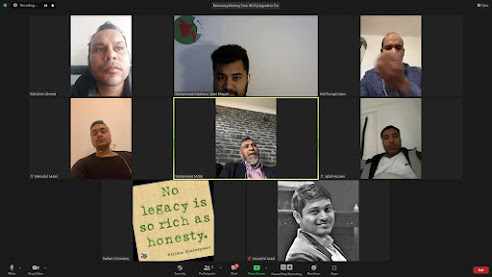Bangladesh is witnessing a disturbing spate of mob lynching
incidents in the last two days, sparking concerns from rights activists
concerning lawlessness in the country.
Without proper awareness campaigns against mob justice, incidents
of lynching continue on a regular basis as five people were killed across the
country on one day alone.
Even though law enforcement is supposed to prevent people from
being vigilantes, human rights campaigners raised allegations that security
forces often do not intervene in such situations and blame them for the failure
in protecting people.
The incidents of mob beatings first came to light when six
students were killed on the night of Shab-e-Barat in Borodeshi village near
Aminbazar in Savar, Dhaka, on July 17, 2011.
Very recently, on Saturday, five people were beaten to death while
several sustained injuries after angry mobs attacked them suspecting them to be
child kidnappers.
In Dhaka, a woman was killed by locals on suspicion of being a
kidnapper, hen she was entering a school in the Badda area of Dhaka.
The woman, Taslima Begum Renu, a single mother, actually went to
the Uttar Badda Government Primary School to ask about the admission process,
but the mob killed her when some locals assumed her to be a child abductor.
Nasir Uddin, nephew of the victim, filed a case with Badda police
station on Saturday, accusing five hundred unnamed people.
Another woman around age 32, died at a Dhaka hospital on Saturday
when locals in Savar’s Tatuljhora area beat her up, following her 'suspicious'
movement. Several hundred people have been sued over both the incidents.
In Narayanganj, a man was beaten to death when locals suspected
him be a kidnapper. Police arrested 14 people in connection with
the case.
Two men were thrashed by a mob in Keraniganj, killing one, and
injuring the other, when locals thought them to be kidnappers while they were
talking to a group of children.
In Moulvibazar, an unidentified man was beaten dead by a mob at a
tea estate.
At least 14 people were beaten up across the country in separate
incidents yesterday.
Four people, including a woman, were beaten up by a mob in Comilla
yesterday in two separate incidents.
Ratna, 50, her husband Abul Kalam, 74, and Anwar Hossain, 28, were
beaten up by a mob suspecting them to be kidnappers in Dhutia Dighir Par
area of Amratoli union of Comilla Sadar upazila. Arif from Brahmanbaria's Kasba
Upazila was beaten up by a mob in the Majhigacha area of Comilla.
In Tangail, locals handed over three people to the police after
giving them a good beating in the district town.
In Naogaon, six people were beaten up by a mob in Buridaha village
yesterday morning.
Six people killed a month this year
According to human rights watchdog, Ain O Salish Kendra (ASK),
some 36 lynching incidents took place in the first six months of the year from
January to June.
On an average, the country has experienced six mob lynching
incidents a month.
According to ASK statistics, at least 175 people were killed in
mob beatings over the last four and a half years.
Of them, 51 people were killed in 2016, 50 in 2017, and 39 in
2018. In the first six months of this year, at least 36 people were killed by
mob violence.
The ASK findings also show the most of the mob beatings took place
in Dhaka division.
Experts for bringing back people's faith on police
Incidents of mob beating are continuing because of lack of
punishment for the offenders, and people's lack of confidence in law
enforcement ensuring justice, said criminology specialists.
Kazi Reazul Haque, former chairman of the National Human Rights
Commission (NHRC), said it is a crime for a mob to beat a person to death, even
if that person is confirmed to be a criminal.
“It was mandatory to investigate all mob beating incidents as no
one had the right to take the law into their own hands,” he said.
According to section 304 of the penal code, if the act by which
the death of a person is executed with an intention of causing death, or if
such bodily injury is caused that it is likely to cause death, the punishment
of such act is life term imprisonment. However, no one has received any such
punishment till date.
The former NHRC chief said these murders are the result of a lack
of patience and the moral decline in society evidenced by some of the
latest disturbing incidents in society.
“People became impatient as these incidents hurt the faith of
people in the rule of law in the country, which in the long run may result in lawlessness,”
he said.
Failure of police to arrest criminals and ensure their punishment,
has given rise to lawlessness among people who are taking the law into their
own hands.
Stressing the need for more social awareness, he said the
government needs to take initiative in finishing case trials in the shortest
possible time, and ensure the punishment of criminals so people can believe
that criminals cannot walk away after committing a crime.
Meanwhile, the Bangladesh Police has asked people not to take the
law into their own hands as mob killing is a criminal offence.
“Spreading rumours is leading to unrest in the country,” the
police said.
Very recently, rumours spread on Facebook said that “human heads
and blood are required to build the Padma Bridge.”
“Cases related to mob justice will be investigated diligently by
the police, and people involved in such mob violence will be brought to
justice,”

Comments
Post a Comment